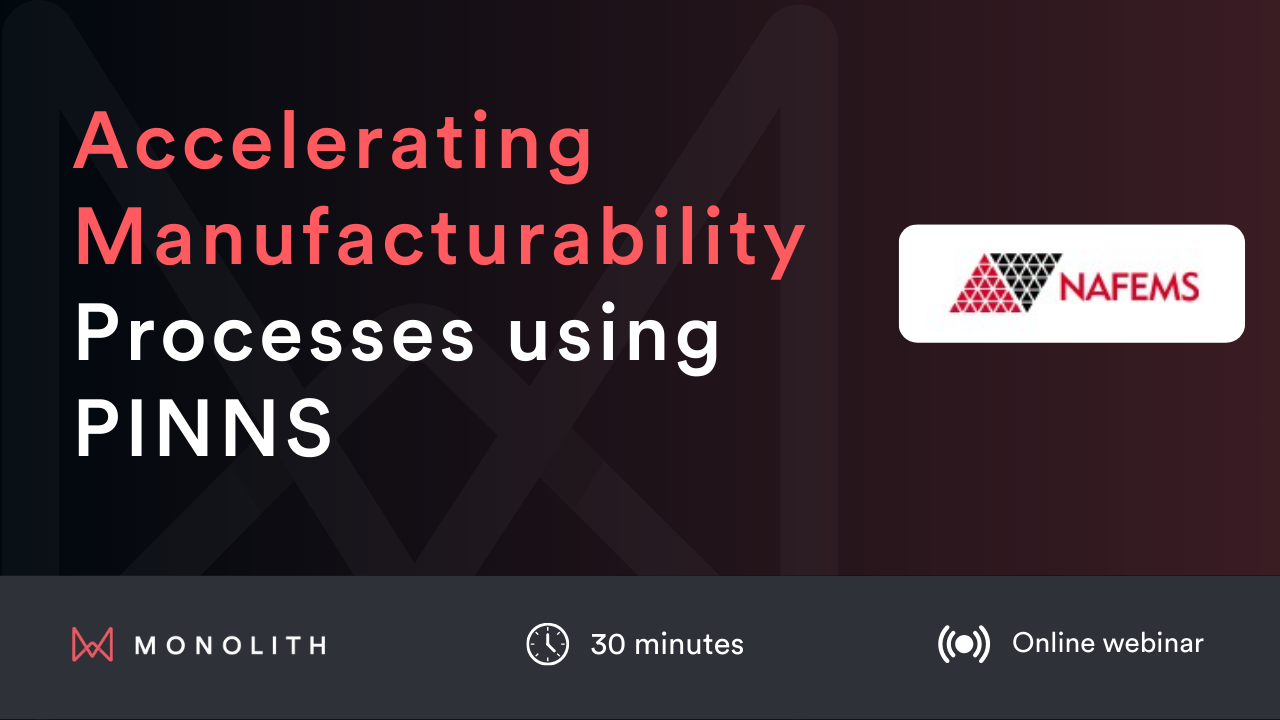On-demand webinar
NAFEMS: accelerating manufacturability processes using PINNs

NAFEMS virtual seminar:
AI, data-driven models & machine learning — how will advanced technologies shape future simulation processes?
Artificial intelligence, and more specifically machine learning, is becoming another method for engineers engaged in product development, design and deployment to have in their toolkit. In recognition of the growing importance and potential impact of AI, NAFEMS is organising a regular international seminar to help its members gain a sense of where ML technologies are having a real impact and where it might be going. Similar to the growth of traditional engineering analysis and simulation, the growth trajectory of ML/AI is experiencing some of the same growing pains.
In the first seminar of this series in April of 2021, several themes were covered such as the synergy between Machine Learning and traditional engineering simulation to help deliver productivity gains, model trustworthiness, and physics-informed machine learning. In this second seminar, several themes - such as Digital Twin, Advanced Design, and others - will be covered with continued emphasis on practical case studies on how these tools are being used today to solve product engineering problems throughout the product lifecycle. We will continue to explore both the synergies and differences between Machine Learning and traditional engineering simulation methodologies throughout this seminar series.
In this presentation recording, Monolith introduces the concept of PINNs and how they can be used to accelerate Manufacturability Processes. Our founder Richard Ahlfeld gives insights into the current research in the field of Explainable AI (XAI).

